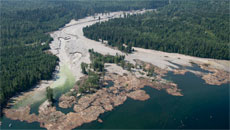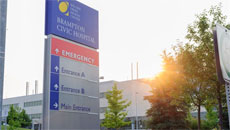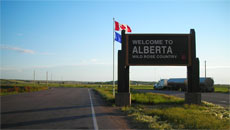TORONTO - The Canadian government says experts, not politicians, will decide how donated Canadian Ebola vaccine will be used.
Canadian Heritage Minister Shelly Glover says politics has no place in the decisions on how best to use the 800 to 1,000 doses Canada has promised to donate.
Canada announced Tuesday that it would redirect hundreds of doses of the experimental vaccine to the outbreak response after the World Health Organization said it would be ethical to use untested therapies in West Africa.
The available supplies of the Canadian vaccine had been produced for a clinical trial. The vaccine was developed by scientists at Canada's National Microbiology Laboratory in Winnipeg.
To date the only person who has received the vaccine was a German researcher who pricked her finger with a needle containing Ebola virus in 2009.
The woman survived, but it was never clear if the vaccine was the reason. It was possible she was not infected in the first place.
Glover, who is also the minister responsible for Manitoba, was asked at a news conference Wednesday how the donated vaccine would be allocated and whether the government had a preference regarding how it is used.
"This is not a political decision at all. This is a very serious disease, this has taken the lives of many, many people and we're doing our part as a country to provide assistance to the global community," she said.
"So this is a decision that will be made by experts and not politicians.... Politicians don't have the expertise to make those decisions."
Guinea — where the outbreak is thought to have started — is considering asking for access to the vaccine, according to that country's Communications Minister Al Houssein Makanera Kake.
Glover noted the WHO is convening a panel to work through issues related to how the very limited amounts of experimental vaccines and drugs should be used in this outbreak, the largest on record.
As of Aug. 11, 1,975 people have been known to have been infected in this outbreak, and 1,069 have died, the WHO said Wednesday.
To put the outbreak in context: 46 per cent of all known cases of Ebola ever have occurred in this outbreak, which is spreading through Guinea, Sierra Leone, Liberia and to a limited extent Nigeria.
The Canadian-made experimental vaccine, known as VSV-EBOV, was designed as a one-dose vaccine. Research in primates suggests it can be used both to prevent infection and to enhance the chances of survival if given quickly after infection.
Dr. Gary Kobinger, the head of the special pathogens program at the Winnipeg lab, said the number of people who could receive the donated vaccine will depend on how much is used to prevent infection — which requires a smaller amount of vaccine — and how many people receive it as post-exposure treatment.
In related news, the Burnaby, B.C.-based company Tekmira Pharmaceuticals said Wednesday it is evaluating options for use of some supplies of its experimental drug, TMK-Ebola. The company has been conducting a clinical trial with the compound.
It has not said how much drug it has available, but did say that it would take months to make more when supplies are exhausted.
In a statement to investors, the company said there is currently no regulatory framework to use the drug in affected countries.
"There can be no assurance that an appropriate framework for the use of this product will be found," in the outbreak, Tekmira admitted.





